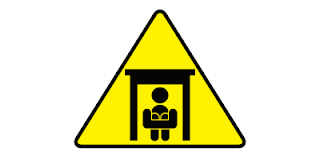These days we have any number of complementary and competing Holmeses, including wonderful legacy portrayals by Basil Rathbone and Jeremy Brett; revisionist Holmeses like Guy Ritchie's action hero as portrayed by Robert Downey, Jr.; and alternative world Holmeses like the contemporary-world Stephen Moffat series as portrayed by Benedict Cumberbatch. There are hundreds if not thousands of Holmes stories, with some (like Nicholas Meyers's famous Seven-Per-Cent Solution) taking great pains to fit within Doyle's style and timeline, and others jettisoning verisimilitude entirely and having Holmes fight aliens or travel through time. And on top of all of these, we have a multitude of parodies and pastiches from muppet Sherlock Hemlock to Mad's Shermlock Shomes to the Firesign Theatre's Hemlock Stones, who finally took on the case for which the world was not ready.
One might think that with all these Holmeses, audiences might be confused. Where to start? Which one is "real?" And what about the integrity of the creation, is that being preserved? But in practice, there is no difficulty. Communities of readers and viewers can pick and choose which Sherlocks they'd like to support; most probably have several favorites. Likewise, if they find one portrayal out of character or another story's plot falls flat, they're free to ignore them. And the original stories are still there, still untouched and unrevised (although Doyle himself indulged in revisionism by bringing Holmes back from the dead after he killed his creation off). Doyle's canonical works are unaffected by other writers' contributions—if anything, the derivative works keep the originals fresh and relevant.
I like to bring up Holmes when people fret about authorial intent and an artist "owning" their work, or complain about fan fiction being an affront of some sort, or insist that working from another artist's setting or character is unimaginative or a rip-off. The tendency is to see Sherlock Holmes as a special case, owing to his ubiquity in the culture. But isn't his prominent position precisely because of the participatory way the culture at large uses him? In my post about George Lucas, I champion the idea (which I didn't originate) that the eventual relevance of a piece of art owes more to the work of its audience than of its creator. I know this is a controversial idea, especially to people who like the idea of the Artist as an Auteur, uniquely responsible for his creation. But it seems to me that when artists practices their craft they are joining a game in progress, learning the rules by watching others, and then moving the ball along; and then it's up to the audience to decide if they scored or not, and why it mattered, and how it mattered, and before long it's the readers or viewers or listeners who have possession.





